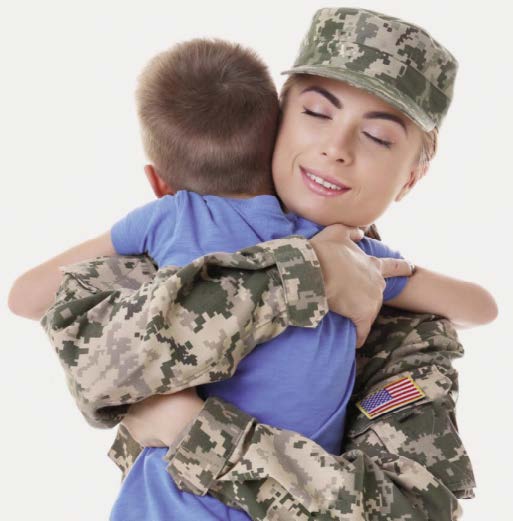RECOGNIZING THE SIGNS OF STRESS IN CHILDREN AFTER A DISASTER
Even the most well-adjusted children may experience stress following a disaster or traumatic event. It's important to understand how to recognize and address signs of stress so you can help your children cope with their feelings.
YOUNG CHILDREN
Young children don't always have the words, or willingness, to express how they feel when something makes them feel insecure, scared or upset. After a traumatic event, you may notice the following signs of stress in your child:
• Irritability
• Excessive crying
• Acting out parts of the event or disaster
• Difficulty sleeping or nightmares
• Lack of emotional expression
• Regressive behaviors, such as thumb-sucking or bedwetting
SCHOOL-AGE CHILDREN AND TEENAGERS
School-age children and teenagers may have a better understanding of what's happening, and may appear to be in control of themselves during an actual crisis. However, they can still experience post-disaster stress. Such emotions may be expressed in the following ways:
• Preoccupation with the event or disaster
• Withdrawal from friends or favorite activities
• Sleep problems, headaches or nausea
• Inability to concentrate at school
• Guilt or depression over what has happened
• Risk-taking behaviors
• Fear of leaving home
HOW YOU CAN HELP
There are a number of things you can do to help your children handle stress after a traumatic event. Try the following:
• Get back to a normal routine as soon as possible. If your child's daily routine has been interrupted, let him or her know that the disruption is only temporary.
• Provide extra physical reassurance. Hugging or sitting close to read a book or play a game can help restore a younger child's sense of safety.
• Be available to talk with and comfort your child. Initiate conversations with open ended questions. Pay close attention to your child's words, gestures and expressions when she or he responds.
• Be aware of your own reactions. Children may be unsettled by a parent's strong reaction to a traumatic event or disaster. When discussing the event among other adults, be careful not to say anything that may be disturbing for children to hear.
• Limit media exposure. Try to shield young children from graphic details and pictures on the internet, on TV and in other media. You may not be able to keep older children and teenagers from seeing disturbing words or pictures, but you can read or watch and discuss the media coverage with them.
If stress begins to interfere with your child's routines, relationships or wellbeing, it may be time to seek professional help. You know your child best. If you are concerned, get help right away from a professional such as your pediatrician, an adolescent medicine specialist or a counselor. If your child is in a state of crisis, you can contact the Military Crisis Line 24 hours a day (1-800-273-8255 and Press 1). You can also start a conversation via online chat or text (838255).•
